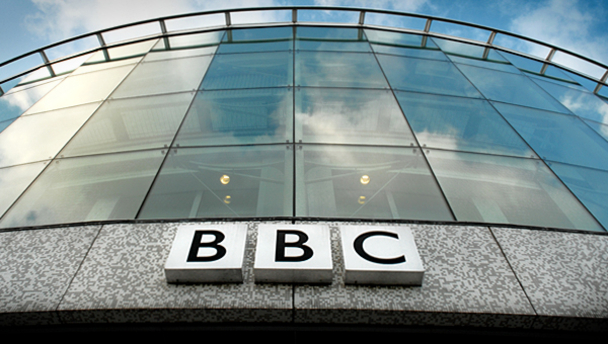In contrast to US state propaganda, the BBC’s External Services prided themselves on presenting a mature, balanced view, winning by argument, rather than hammering home a point, in the best tradition of British understatement. This proclaimed policy of ‘balance’ gave the BBC more international credibility than any other broadcasting organization in the world. The BBC’s dependence on the British Government was evident, since its budget was controlled by the Treasury through grant-in-aid from the Foreign and Colonial Office (now called the Foreign and Commonwealth Office), which could also decide which languages were used for programmes and for how long they were broadcast to each audience. For example, during the Berlin blockade of 1948-49 almost the entire output of the BBC external services was directed to Eastern bloc countries. In addition, the government exerted indirect influence on the BBC since the relay stations and overseas transmitters were negotiated through or owned […]
Covert communication – Radio Free Europe and Radio Liberty
Among the explicitly propagandist radio stations that thrived during the Cold War were Radio Free Europe (RFE) and Radio Liberty (RL), operating from West Germany. While the Voice of America was the legitimate broadcasting arm of the United States Information Agency, the Munich-based RFE and RL were covert organizations carrying out a propaganda war against communism in Europe. They were part of what is now called ‘psychological warfare’ in which the ‘campaign for truth’ became the ‘crusade for freedom’. Free Europe Inc. was established in 1949 as a non-profit-making, private corporation to broadcast news and current affairs programmes to Eastern European countries behind the Iron Curtain. Radio Liberation (the name Radio Liberty was adopted in 1963) was created two years later along the same lines to broadcast to the Soviet Union (Mickelson, 1983). Both were covertly funded by the US Government, mainly through the Central Intelligence Agency until 1971, when […]
The Cold War – from Communist Propaganda to Capitalist Persuasion
The victorious allies of the Second World War – the Soviet Union and the West led by the United States – soon fell out as differences emerged about the post-war order in Europe and the rest of the world. The clash was, in essence, about two contrasting views of organizing society: the Soviet view, inspired by Marxism-Leninism, and the capitalist individualism championed by the USA. The defeat of Nazism and militarism of Japan was accompanied by the US-proclaimed victory of democracy and the creation of the United Nations system. Though the 1947 General Assembly Resolution 110 (II) condemned ‘all forms of propaganda which are designed or likely to provoke or encourage any threat to the peace, breach of the peace, or act of aggression’, both camps indulged in regular propaganda as the battle lines of the Cold War were being drawn (quoted in Taylor, 1997). Soviet Broadcast Propaganda In the […]
The Battle of the Airwaves – Mass Media Communication
The battle of the airwaves The strategic significance of international communication grew with the expansion of the new medium. Ever since the advent of radio, its use for propaganda was an integral part of its development, with its power to influence values, beliefs and attitudes (Taylor, 1995). During the First World War, the power of radio was quickly recognized as vital both to the management of public opinion at home and propaganda abroad, directed at allies and enemies alike. As noted by a distinguished scholar of propaganda: ‘During the war period it came to be recognised that the mobilisation of men and means was not sufficient; there must be mobilisation of opinion. Power over opinion, as over life and property, passed into official hands’ (Lasswell, 1927: 14). The Russian communists were one of the earliest political groups to realize the ideological and strategic importance of broadcasting, and the first public […]
Radio and International Communication
As with other new technologies, Western countries were the first to grasp the strategic implications of radio communication after the first radio transmissions of the human voice in 1902. Unlike cable, radio equipment was comparatively cheap and could be sold on a mass scale. There was also a growing awareness among American businesses that radio, if properly developed and controlled, might be used to undercut the huge advantages of British-dominated international cable links (Luther, 1988). They realized that, while undersea cables and their landing terminals could be vulnerable, and their location required bilateral negotiations between nations, radio waves could travel anywhere, unrestrained by politics or geography. At the 1906 international radiotelegraph conference in Berlin, 28 states debated radio equipment standards and procedures to minimize interference. The great naval powers, who were also the major users of radio (Britain, Germany, France, the USA and Russia), had imposed a regime of radio […]
The Advent of Popular Media
The expansion of printing presses and the internationalization of news agencies were contributing factors in the growth of a worldwide newspaper industry. The Times of India was founded in 1838 while Southeast Asia’s premier newspaper The Straits Times was started as a daily newspaper from Singapore in 1858. Advances in printing technology meant that newspapers in non-European languages could also be printed and distributed. By 1870 more than 140 newspapers were being printed in Indian languages; in Cairo Al-Ahram, the newspaper which has defined Arab journalism for more than a century, was established in 1875, while in 1890, Japan’s most respected newspaper Asahi Shimbun (Morning Sun) was founded. In Europe, the growth of popular press was unprecedented in the 1890s – France’s Le Petit Parisien had a circulation of 1 million in 1890, while in Britain, the Daily Mail, launched in 1896, which redefined boundaries of journalism, was doing roaring […]
